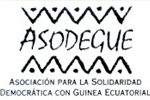|
Human rights | Media
SA, Benin best, Eritrea worst on press freedom
afrol News, 21 October -
This year's ranking of the press freedom
situation in 166 countries of the world shows great differences among
African countries and that "wealth and press freedom don't always go
together." The indicative list however presents many questionable
conclusions on Africa.
The Paris-based group Reporters sans Frontières (RSF) -
which continuously monitors attacks against press freedom all over the
world - yesterday published its second "world press freedom ranking".
As last year, the four North European countries Finland, Iceland,
Netherlands and Norway shared the first place for "scrupulously respecting
press freedom in their own countries" and "speak up for it elsewhere." The
best 20 countries are mostly North European, but also include the
Caribbean state Trinidad and Tobago (nr. 5).
The states with "the
most catastrophic situation," according to RSF, are to be found in Asia,
with eight countries in the bottom ten. These include North Korea, Burma,
China and Iran, but also Cuba and Eritrea - the worst country in Africa,
according to RSF.
This year's "surprises" are to be found in the
middle spectre, where the United States have fallen from rank 17 last year
to rank 31 this year, given the pressure on the US press during the Iraq
war. The press freedom situation in South Africa (rank 21) and Benin (29)
is therefore observed to be better than in the US.
Further, the US
is ranked twice, once for the situation on American territory (31) and
once for their behaviour as the occupying power of Iraq (135). The US in
Iraq thus are ranked worse that Swaziland (124), Morocco (131) and Liberia
(132) and almost as bad as Equatorial Guinea (139), Zimbabwe (141) and
Sudan (142).
The RSF team recompiling the list designed a
questionnaire with 53 criteria for assessing the state of press freedom in
each country. It includes every kind of violation directly affecting
journalists - such as murders, imprisonment, physical attacks and threats
- and news media - censorship, confiscation of issues, searches and
harassment. The questionnaire was sent to people who were believed to
"have a deep knowledge of the state of press freedom in a country."
The resulting list however clearly shows that some methodology
errors must have occurred in the process. Probably, the questions have
given too much weight to recent events, somewhat overlooking the
underlying structures for the establishment and maintenance of a free
press.
Looking at the negative points each country could score
(100 points are a complete disaster, while 0 points correspond to a
perfect situation), it surprises that North Korea and Cuba almost reach
100 points, while Equatorial Guinea ends up at 45 negative points. Also
Zimbabwe is supposed to be worse than Equatorial Guinea.
Cuba is
"the world's biggest prison for journalists," as RSF correctly points out,
but in Equatorial Guinea, editors and journalists have already given up.
Here, no independent media exist, no one dreams of establishing free media
and even the semi-independent journalists' association has been closed
down. In Zimbabwe, after all, there are still defenders of press freedom,
although getting punched by government each and every day.
Equally,
it surprises that Libya "only" gets 60 out of 100 possible negative
points. Libya and Equatorial Guinea do not have a remarkably better press
freedom situation than Eritrea only because Eritrea has more journalists
in prison. Here, the ranking only reflects that the deterioration in
Eritrea is more recent than in the two other countries, where editors gave
up a long time ago.
Also in the mid-range, the ranking of African
countries produces more questions than answers. Togo (95) is a country
with constant government attacks on the remnants of a free press - quite
comparable to Zimbabwe (141) - and in Seychelles (93), government has
already won its war against the press.
Nevertheless, countries
like Nigeria (103) and Egypt (110) are ranked far below Seychelles and
Togo. Both Nigeria and Egypt have a wide spectre of opposition media,
which, in particular in Nigeria's case, are widely left alone by central
government.
Southern Africa further experiences a peculiar rating.
Not surprisingly, South Africa (21) is the best country - which indeed
should have been placed even higher up on the list. This is followed by
Namibia (56), Botswana (62), Mozambique (63) and Lesotho (75). Again, it
remains questionable how Lesotho and Botswana got ranked so low and
Mozambique so high.
With 166 countries and territories on the list,
the RSF press freedom ranking should have become a better tool for
comparing these countries. This ranking tool still seems an unfulfilled
task, where one particular needs better information on the situation in
Africa. The task is however praiseworthy and the list pinpoints serious
tendencies in world press freedom.
By Rainer Chr. Hennig
© afrol News |


![]() about afrol News | news | countries | archive | services | feed back | español
about afrol News | news | countries | archive | services | feed back | español
















